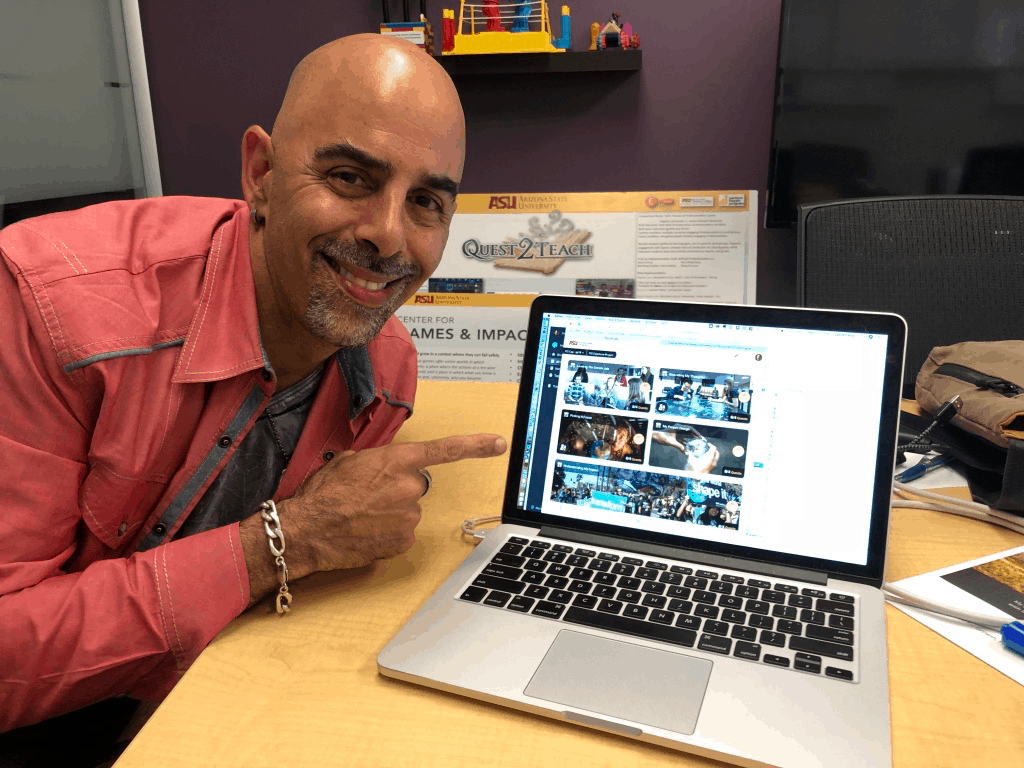We’ve Got It Backwards: Starting With Content Rather than Learners Doesn’t Work

Why are high school students so bored? How could we engage them to learn the required content? How can we nudge, support, and coerce college learners to graduation?
What if we’re asking the wrong questions? What if memorizing content and procedures wasn’t the point?
A short paper in a small journal provided profound advice for modern learning design rooted in ancient wisdom: start with the learner.
Exploring the dialectic of Plato’s interest in universals and Aristotle’s preoccupation with the particulars, Arizona State University professor Sasha Barab points out the foundational flaw of modern education.
“At the core,” argues Barab, “is an educational system heavily influenced by dualist assumptions inherent in the works of Plato, making it seem reasonable if not expeditious to build lessons focused on transmitting abstracted universals into a learner’s disembodied mind.”
In other words, kids are bored because we’re trying to push content they don’t care about into their brains. In a world where consent matters, pushing content into another seems like the wrong metaphor even, if not especially, in places of learning. “For, it is here, when cultivating the growth of a vulnerable mind that we need to be the most respectful. Maybe we should focus on learning as a process of invitation, not intervention,” said Barab.
He adds that, “an educational system that treats abstracted universals as having inherent value independent of real-world application reinforces grades as motivators and for many is an inadequate if not demoralizing motivation for learning.”
He argues that the core value exchange—learn this stuff and I’ll give you a grade—is just a bad bargain. Barab suggests a thought experiment, “What would happen if educators reversed the core assumptions, beginning with the interrelations of person, content, and context and then put emphasis on how to leverage success with particulars to generate appreciation of universals?”
In other words, what if we started with the learner and what they care about?
What if Impacting the World Was the Goal?
We inherited a system that values what Barab calls “abstract nouns” over “lived verbs.”
“In contrast,” argues Barab, “when one treats impacting the world as the goal, then the criteria for success becomes whether the individual can, and chooses to, leverage the to-be-learned content in ways that are relevant to goals that they view as important.”
We have a system of secondary and postsecondary learning preoccupied with what well-intentioned educators call ‘student engagement.’ But it is a heavy lift to “reengage uninvested learners in appreciating why learning the content being taught in schools is good for them at some point in the future,” notes Barab.
But as many Millennials will tell you, “we can make the future whatever we want. Just because it has always been this way, doesn’t mean it always has to be this way.”
What if the goal, rather than consuming content, was to help people thrive?
What if the goal was to help learners see themselves as capable of using that which is being learned to accomplish goals that matter to them?
“There is little question that moving from nouns that are about the structure of the universal to verbs focused on learners leveraging universals to achieve goals that they care about would be a radical change to the current system,” said Barab.
“In this redesign,” explains Barab, “the focus is on learners making progress in situations that they care about and for which universals have value.” In contrast to systems that privilege only content, a redesign would put person and context on equal footing.
“Such a system would prioritize people thriving in particular situations, not on consuming content in ways that might have value in some future situation.”
Imagine schools that were laboratories of transformation—of people and communities—rather than places formulas and facts were memorized.
Barab concludes, “By starting with the specific use cases that learners care about and the progress they wish to make in these situations, or even that the educators wanted them to make, one would begin to see the power of the situation and the learner, resulting in an educational system that valued making awesome people who can do great things over one that primarily cares about disembodied articulations.”

More than an academic exercise, Barab serves as a director of the Center for Games and Impact at ASU, where he and his colleagues develop theories and build designs to support learning. If you are interested in learning more about their work on games for impact or their recently released ThriveCast connected growth platform feel free to send him an email at [email protected].
For more, see:
- Learner-Centered Schools in Albemarle County
- The Promise and Challenge of Student-Centered Learning
- Randy Ziegenfuss on Teacher Leadership and Student-Centered Learning
Stay in-the-know with innovations in learning by signing up for the weekly Smart Update
This post was originally published on Forbes.






0 Comments
Leave a Comment
Your email address will not be published. All fields are required.